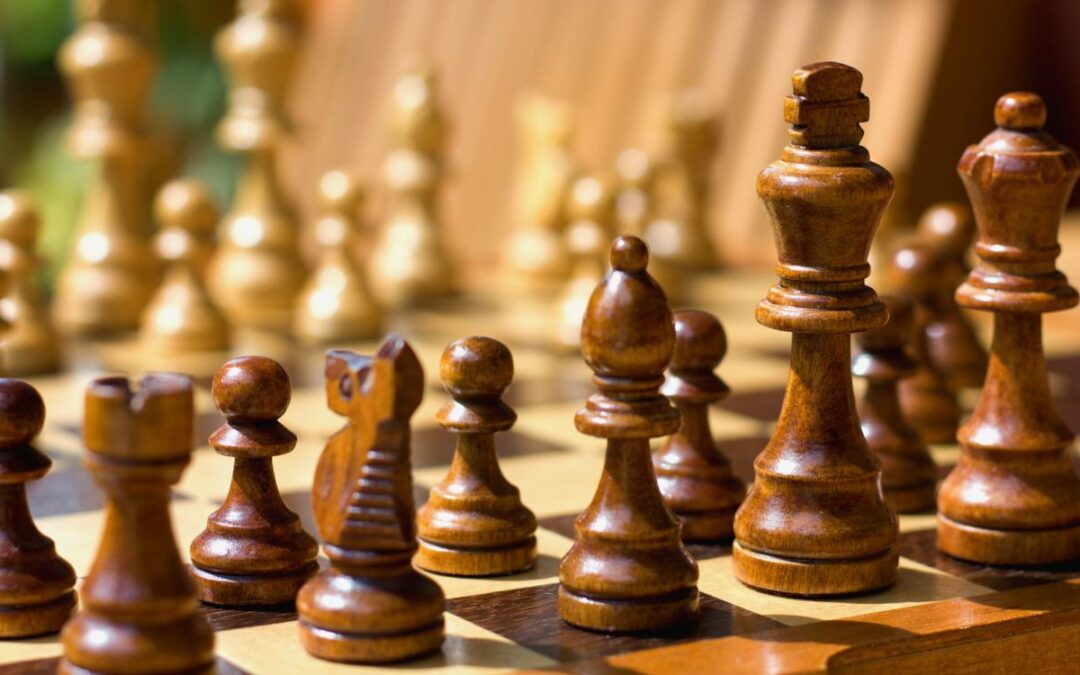Chess is a game of patience, strategy, and mental endurance. While shorter games demand quick thinking, longer chess matches require sustained focus, deep calculation, and resilience. Many young players struggle to maintain concentration during extended games, which can impact their performance.
Whether your child is just starting their chess game journey or already enrolled in chess classes, developing focus and mental stamina is crucial. In this guide, we’ll explore practical strategies to help young players stay engaged during long games, along with expert tips from Premier Chess Academy to enhance concentration and gameplay skills.
1. Importance of Focus in a Chess Game
Focus is one of the most critical aspects of success in a chess game. Without it, even a strong player can make mistakes or overlook key opportunities. Long games, such as classical chess formats, require players to think ahead, evaluate multiple possibilities, and avoid distractions.
Maintaining concentration helps players:
-
Spot their opponent’s weaknesses.
-
Calculate deeper variations and avoid blunders.
-
Manage time effectively while making strategic decisions.
-
Stay mentally sharp throughout the game.
Developing focus is not just about avoiding distractions but also about building mental endurance through training, practice, and discipline.
![]()
2. Building a Strong Chess Setup for Focused Play
A well-organized chess setup plays a key role in helping children stay focused. A clutter-free, comfortable, and distraction-free environment enhances concentration and improves gameplay efficiency.
Creating an Effective Chess Setup:
-
Proper Lighting: Ensure the playing area has adequate lighting to prevent eye strain.
-
Comfortable Seating: A good chair and table setup will help maintain the right posture.
-
Minimal Distractions: Keep the playing area free from noise, electronic devices, or interruptions.
-
Access to Chess Resources: Have a chessboard, a digital chess clock, and relevant books or guides nearby.
Many experts at Premier Chess Academy recommend setting up a dedicated chess study corner at home where children can practice without distractions.
3. Training Focus Through Chess Classes and Exercises
Regular chess classes help children develop discipline and improve their ability to concentrate for extended periods. Professional coaches use structured training methods to enhance a child’s endurance and problem-solving skills.
Key Training Techniques:
-
Visualization Exercises: Encourages players to analyze positions without a board, strengthening their memory and focus.
-
Endgame Studies: Long games often come down to endgames, so learning how to stay focused in these critical moments is essential.
-
Tactical Drills: Practicing chess puzzles and tactical patterns sharpens the mind and improves quick decision-making.
-
Slow Play Practice: Encouraging children to play long-format games instead of blitz games helps build patience and strategic depth.
Premier Chess Academy incorporates these techniques into its training programs to help young players stay engaged and develop mental resilience.
4. Developing a Focused Pre-Game Routine
A pre-game routine helps children prepare mentally and physically for long chess matches. Establishing consistent habits can create a sense of readiness and improve concentration.
Effective Pre-Game Habits:
-
Get Enough Rest: A well-rested mind performs significantly better in chess games.
-
Eat Brain-Boosting Foods: Healthy snacks like nuts, fruits, and dark chocolate can enhance focus and energy levels.
-
Practice Meditation or Deep Breathing: Relaxation techniques help calm nerves and maintain focus.
-
Review Opening Repertoire: A quick review of favorite openings can provide confidence and direction in the early game.
Many young players at Premier Chess Academy follow structured routines before important games, which helps them stay composed and ready for battle.
5. Mental Endurance Training for Long Games
Chess players, especially young ones, can experience mental fatigue during long games. Training for endurance is just as important as learning chess tactics.
Ways to Build Mental Endurance:
-
Gradual Increase in Game Duration: Start with shorter games and slowly extend playtime to build stamina.
-
Take Strategic Breaks: Encourage brief moments of relaxation (without leaving the board) to reset focus.
-
Mindfulness Training: Techniques like mindfulness and visualization help improve concentration.
-
Simulate Tournament Conditions: Practicing in an environment similar to real tournaments helps children get accustomed to long games.
At Premier Chess Academy, children are encouraged to participate in long-format training games to enhance their ability to stay focused for extended periods.
6. Managing Time Effectively in Long Chess Games
Time management is an essential skill in chess, especially in classical games where players must think deeply while avoiding time trouble. Proper clock handling can prevent last-minute blunders caused by rushed moves.
Key Time Management Strategies:
-
Divide Time Strategically: Allocate time based on different phases of the game – openings, middlegame, and endgame.
-
Avoid Overthinking: While careful calculation is important, spending too much time on a single move can lead to time pressure.
-
Use Increment Wisely: If playing with an increment, ensure steady progress without panicking in the final moments.
Many students at Premier Chess Academy learn clock management strategies in their chess classes, helping them handle long games effectively.
7. Staying Motivated and Confident Throughout the Game
Long games can sometimes feel exhausting, especially for young players. Maintaining motivation is crucial to staying focused until the very last move.
Ways to Stay Motivated:
-
Set Small Goals: Instead of focusing solely on winning, set goals like improving time management or avoiding unnecessary blunders.
-
Stay Positive: Even if the game isn’t going well, staying calm and composed increases the chances of making a comeback.
-
Analyze Past Games: Learning from previous games helps identify strengths and areas for improvement.
-
Compete Regularly: Playing tournaments boosts confidence and experience, making long games feel less overwhelming.
Premier Chess Academy encourages young players to keep a growth mindset, helping them build confidence and resilience in competitive chess.
Conclusion
Helping your child stay focused during long chess games requires a combination of proper training, a supportive environment, and the right mental approach. From setting up an effective chess setup to enrolling in high-quality chess classes, there are various ways to improve concentration and endurance.
With expert guidance from Premier Chess Academy, young players can develop essential skills like time management, strategic thinking, and mental resilience. By incorporating these techniques, your child can stay engaged, perform better in long games, and continue to grow as a strong chess player.


Recent Comments